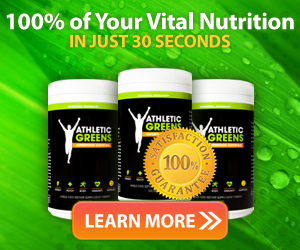What Causes Inflammation?
Refined Carbohydrates, Excess Sugar and Inflammation
Refined carbohydrates and excess sugar can both cause our blood glucose levels to spike and induce acute hyperglycemia, or too high blood sugar. Evidence suggests that when our blood sugar is too high, our body releases extra IL-6 and TNFa, the pro-inflammatory messengers.
Refined carbohydrates and sugars are found in processed foods, including relatively innocent-seeming ones such as bread. Even 100% whole grain bread can be completely converted to glucose (a sugar) by our body in about 20 minutes once it enters our small intestine. Whole, unground grains like rice or quinoa are digested much more slowly, taking up to two hours to complete, and will not spike blood glucose.
Artifical Anything Is a Great Marker
There is not much research to directly tie artificial colors, flavors, and sweeteners to chronic inflammation, though research has tied all of these artificial ingredients to other issues. Artificial ingredients only show up in processed food, which tends to be high in other pro-inflammatory nutrients, if not all of them at once. While removing artificial ingredients themselves may not relieve inflammation, avoiding the processed foods that contain them certainly will.
Foods You Are Allergic or Sensitive To
If you know you have an allergy, even a mild one, then that is a food which will promote inflammation in your body. There are also certain foods which are provoking more and more sensitivities as well, such as gluten or casein (found in dairy), but these foods are not going to cause an inflammatory response in everybody and, like most of the other foods in this list, are inflammatory only in a certain context.
Foods Which Fight Chronic Inflammation
Whereas the pro-inflammatory foods were all about context, the anti-inflammatory foods tend to promote an inflammation-free body at all times.
Through not fully understood mechanisms, many plants contain chemical compounds which actively turn down TNFa, NFkB, IL-6, and CRP activity. Other foods contain nutrients which fight against pro-inflammatory compounds–they prevent their absorption or utilization, leading to a more anti-inflammatory response. Overall, the addition of these foods to your diet will help turn the tables on inflammation, leading to recovery.
How Spices and Herbs Fight Inflammation
A lot of attention has been focused recently on turmeric as an anti-inflammatory and anti-cancer spice. Turmeric does contain a high number of active anti-inflammatory and disease preventing compounds, but the truth is that every spice and herb contains anti-inflammatory compounds, usually at least three. And, whereas most drugs target only single pathways, the anti-inflammatory compounds found in herbs and spices target multiple pathways, meaning they provide health in many ways, not just one.
All spices turn down the production of TNFa, NFkB, IL-6, and other inflammatory messengers. When combined with foods which may provide a pro-inflammatory effect, the herbs and spices help keep our immune response in check. Many of the same herbs and spices also aid in the prevention of cancer, by turning down NFkB activity. Some of the active compounds have been also been shown to be chemosensitizers–they help chemotherapy target the cancerous cells while protecting the healthy ones at the same time!

